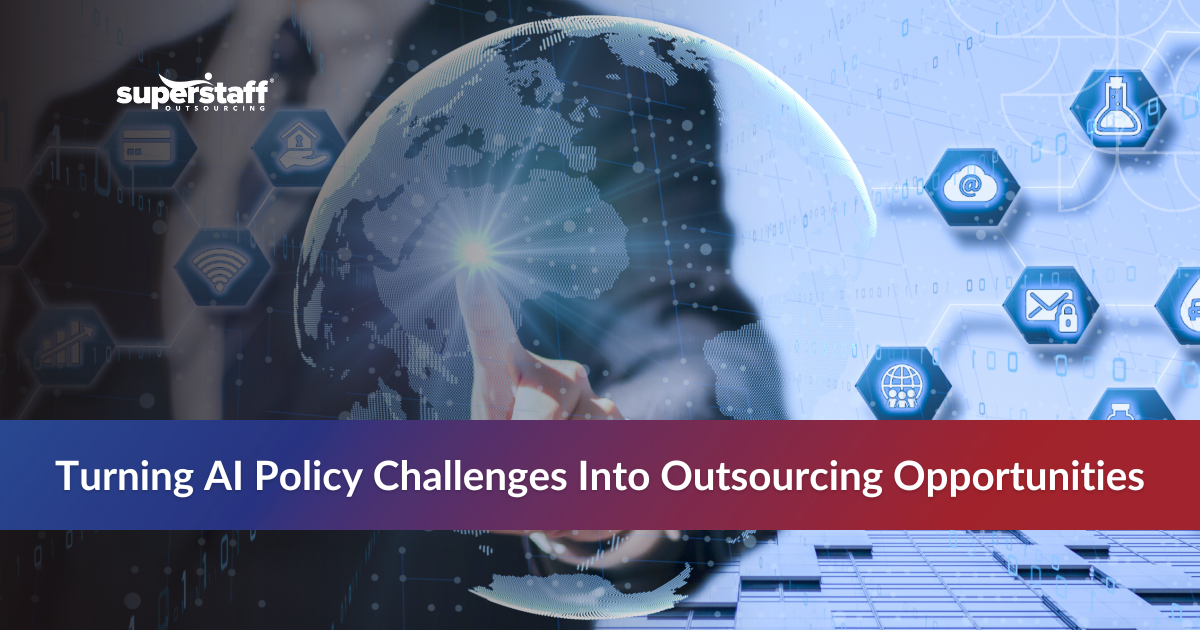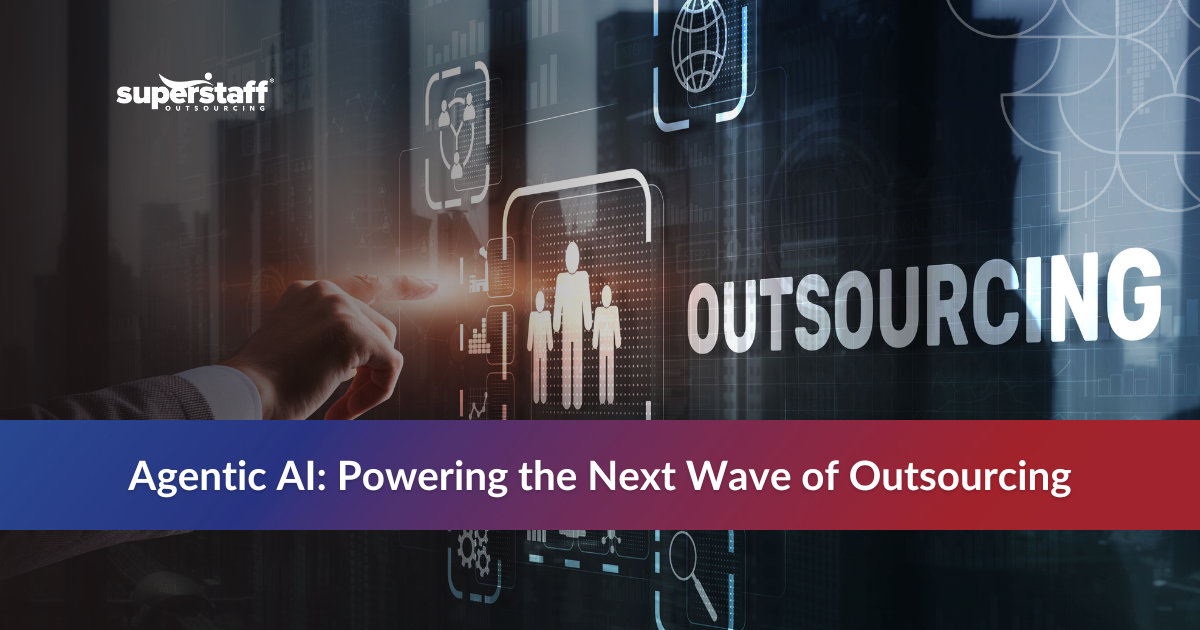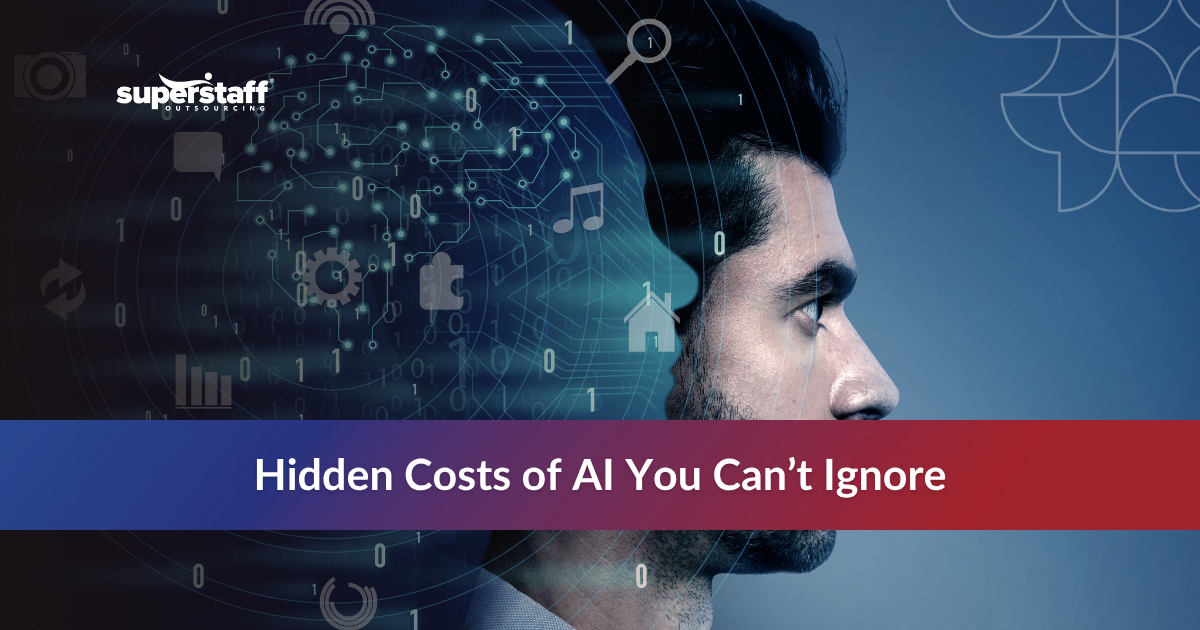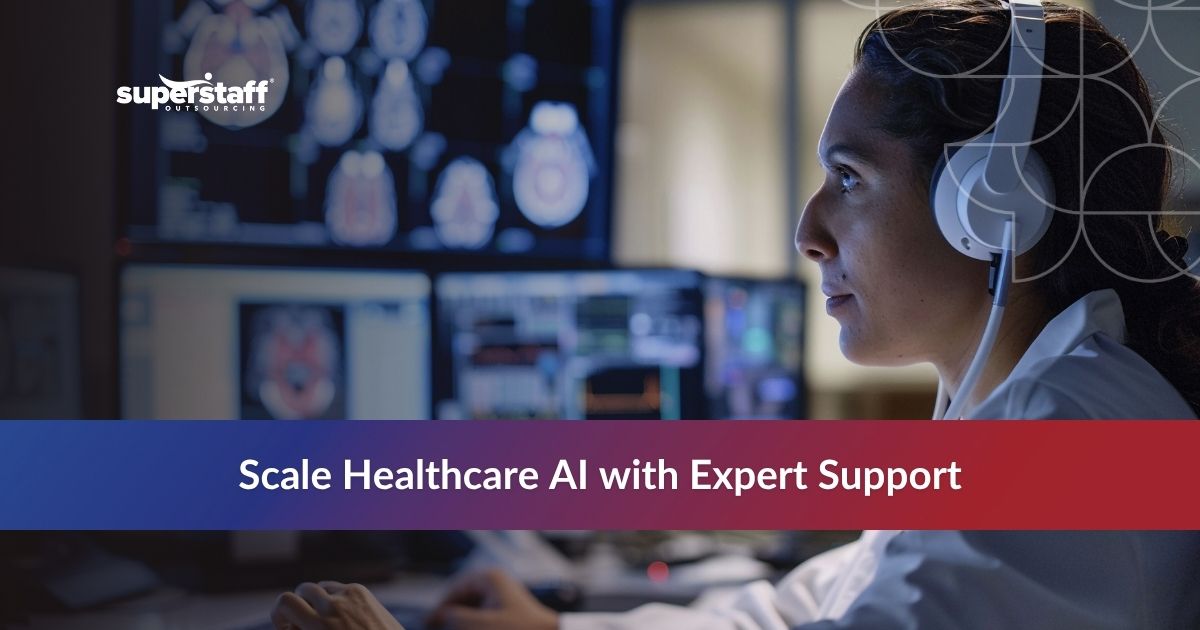
AI is transforming healthcare faster than many organizations can adapt. From streamlining medical records to detecting diseases earlier and more accurately, artificial intelligence is not only changing the way care is delivered—it’s redefining the business of healthcare itself. But as promising as this evolution may be, adopting AI at scale is no easy task. The complexity of implementation, the talent required, and the regulatory maze make it hard for many healthcare providers to keep up.
That’s where outsourcing becomes not just a cost-saving tool, but a strategic enabler. This blog explores how outsourcing empowers healthcare providers to leverage the pros and cons of AI in healthcare while navigating compliance requirements, workforce constraints, and rising patient expectations.
The Fast-Moving Reality of AI in Healthcare
There’s no question that AI is making an enormous impact across the healthcare value chain. Algorithms are improving diagnostics by analyzing radiology scans with greater speed and accuracy. AI tools are customizing treatment plans based on patient histories. Administrative tasks like insurance claims processing and appointment scheduling are becoming faster and more automated.
Yet with all this innovation, healthcare leaders face mounting pressure. The need for machine learning engineers, data analysts, and AI-literate clinicians has surged, creating a talent bottleneck. Meanwhile, healthcare systems must maintain rigorous compliance with data protection regulations like HIPAA, even as they digitize more processes and handle larger volumes of sensitive patient information.
The pros and cons of AI in healthcare become clear at this juncture. While the benefits are game-changing, the execution often falls short due to skill gaps, legacy infrastructure, and operational inertia. And it’s not just large hospitals—small- to mid-sized clinics are equally overwhelmed.
This gap is where outsourcing enters the conversation.
Outsourcing: The Bridge Between Innovation and Implementation
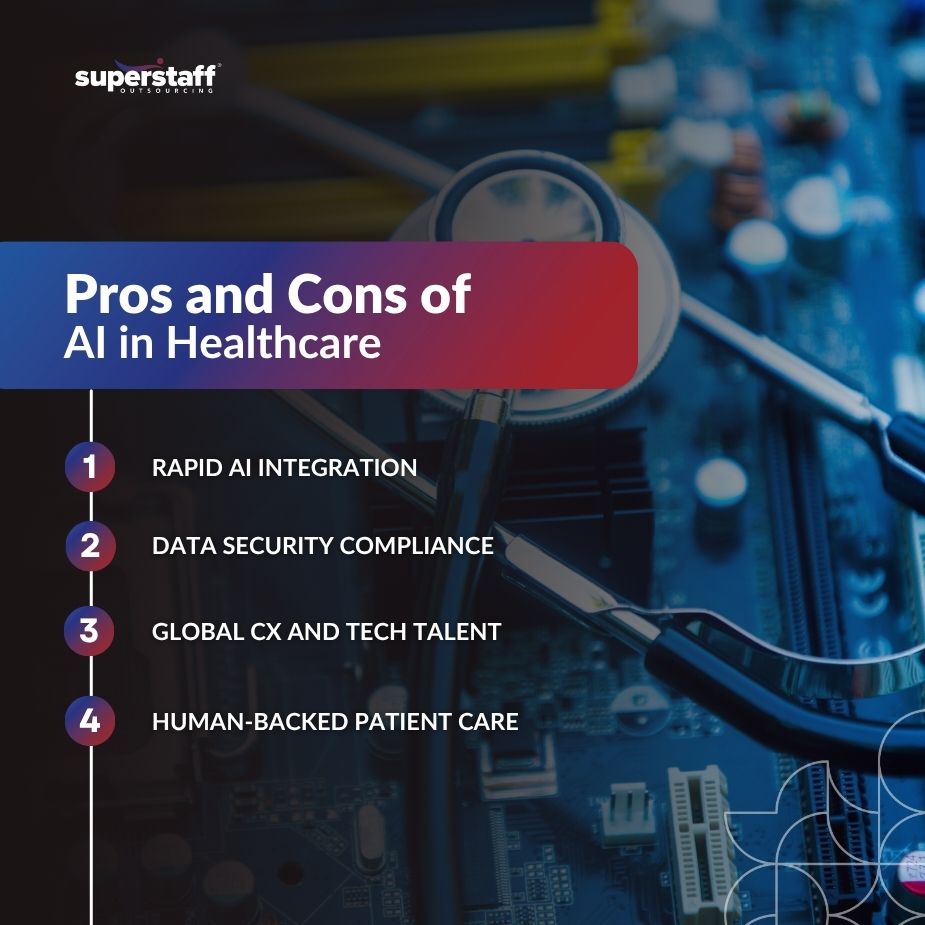
For healthcare companies looking to integrate AI without derailing operations or compromising compliance, outsourcing offers a clear advantage. Experienced outsourcing partners provide immediate access to global talent with deep experience in both healthcare and AI—something that’s hard to assemble internally on short notice.
Whether it’s managing data pipelines, annotating training datasets, or supporting AI-driven automation in back-office functions, outsourcing providers enable healthcare organizations to move quickly. These partners offer 24/7 support, ensuring that data processing and monitoring happen around the clock, not just during office hours.
Even for something as complex as integrating AI with Electronic Health Record (EHR) systems, external teams bring in the experience and focus needed to execute efficiently. Some providers already support AI-enhanced medical coding and claims automation, offering ready-made workflows and proven methodologies.
By addressing both speed and compliance, outsourcing makes the pros and cons of AI in healthcare easier to navigate, allowing providers to scale innovation responsibly.
The People Behind the Models: Outsourcing for AI Training and Validation
Artificial intelligence is only as good as the data it’s trained on. That’s why many healthcare organizations partner with Business Process Outsourcing (BPO) firms to build, label, and refine the datasets that train AI models.
Human-in-the-loop processes are essential to reduce bias, improve accuracy, and ensure that AI tools are safe and effective in real-world medical environments. Outsourced teams offer scalable resources to manage data annotation, quality assurance, and model testing. Whether the task is labeling radiology images or validating natural language processing tools used in telehealth interactions, these professionals play a pivotal role.
Companies that are serious about healthcare automation solutions rely on outsourced teams to ensure their AI is well-calibrated and compliant. These external teams don’t just help build technology—they help build trust in that technology.
Outsourcing brings scale, quality control, and deep domain knowledge to the table, strengthening the foundation on which healthcare AI operates. Again, the pros and cons of AI in healthcare are felt most during development and deployment phases—and outsourcing tips the balance in favor of faster, safer implementation.
Keeping the Human Element Alive in a Digital-First World
For all of AI’s potential, one thing it can’t replace is the human touch. In healthcare, where trust, empathy, and cultural sensitivity are central to the patient experience, technology must complement—not replace—people.
Outsourcing helps strike this balance. AI-enabled systems like chatbots and triage tools can handle routine tasks, but when escalation is needed, outsourced CX teams step in. These teams ensure that patients still feel heard and supported, even when AI is doing the heavy lifting in the background.
In some cases, offshore healthcare professionals—such as registered nurses or medical assistants—work alongside AI tools to triage cases or interpret automated assessments. Their clinical training ensures accuracy, while their interpersonal skills build rapport with patients.
Multilingual support is another area where outsourcing shines. Healthcare providers with diverse patient populations benefit from outsourced teams who can communicate fluently in multiple languages, further improving the user experience.
Ultimately, outsourcing makes sure that as organizations explore the pros and cons of AI in healthcare, they don’t lose sight of compassion, personalization, and accessibility. Technology enhances care—but people deliver it.
Scaling for the Future—Without Breaking the Budget
AI adoption isn’t a one-time project—it’s a journey. As new tools emerge and patient expectations evolve, healthcare providers need flexibility. They must be able to test, scale, adjust, and reinvest without disrupting care delivery.
Outsourcing offers this agility. Whether you’re piloting an AI-based billing system or testing predictive analytics for patient outcomes, an outsourced partner provides elastic capacity. Teams can scale up during intensive development phases or scale down after go-live.
The cost advantages are also compelling. Instead of investing heavily in recruiting, training, and retaining specialized talent in-house, organizations can access the expertise they need at a predictable cost. This frees up capital for clinical innovation and patient care improvements.
Healthcare organizations exploring the pros and cons of AI in healthcare often find that outsourcing is the key to staying nimble. As technologies evolve, so do the services, talent pools, and solutions offered by outsourcing providers.
SuperStaff: Your Partner for AI-Driven Healthcare Outsourcing
SuperStaff stands at the intersection of healthcare experience and next-gen outsourcing solutions. Our teams are trained in healthcare operations, AI support processes, and patient-centered communication.
With HIPAA-compliant infrastructure, multilingual capabilities, and global delivery hubs in the Philippines and Colombia, we provide around-the-clock support for healthcare organizations navigating rapid AI transformation. From data annotation to claims processing to AI-assisted CX, we bring the expertise that midmarket providers need—but can’t always build internally.
For companies evaluating the pros and cons of AI in healthcare, our track record proves that outsourcing isn’t just about saving money—it’s about gaining a competitive edge while staying true to your mission of care.
We understand the stakes. That’s why we partner with healthcare providers at every stage of their AI journey—so they can innovate with confidence, supported by a team that understands both technology and trust.
Outsourcing and the Pros and Cons of AI in Healthcare
As AI redefines healthcare, outsourcing provides the support and expertise needed to lead the transformation. The pros and cons of AI in healthcare show that while the promise of efficiency, precision, and scale is real, so are the challenges. Compliance concerns, staffing shortages, and implementation hurdles can’t be ignored.
Outsourcing helps healthcare organizations bridge these gaps, giving them access to specialized talent, scalable services, and trusted operational support. With SuperStaff, companies don’t have to choose between innovation and patient care—they get both.
Let SuperStaff help you navigate the road ahead. Connect with us today to start building an outsourced support team that will keep your AI initiatives compliant, compassionate, and future-ready!

